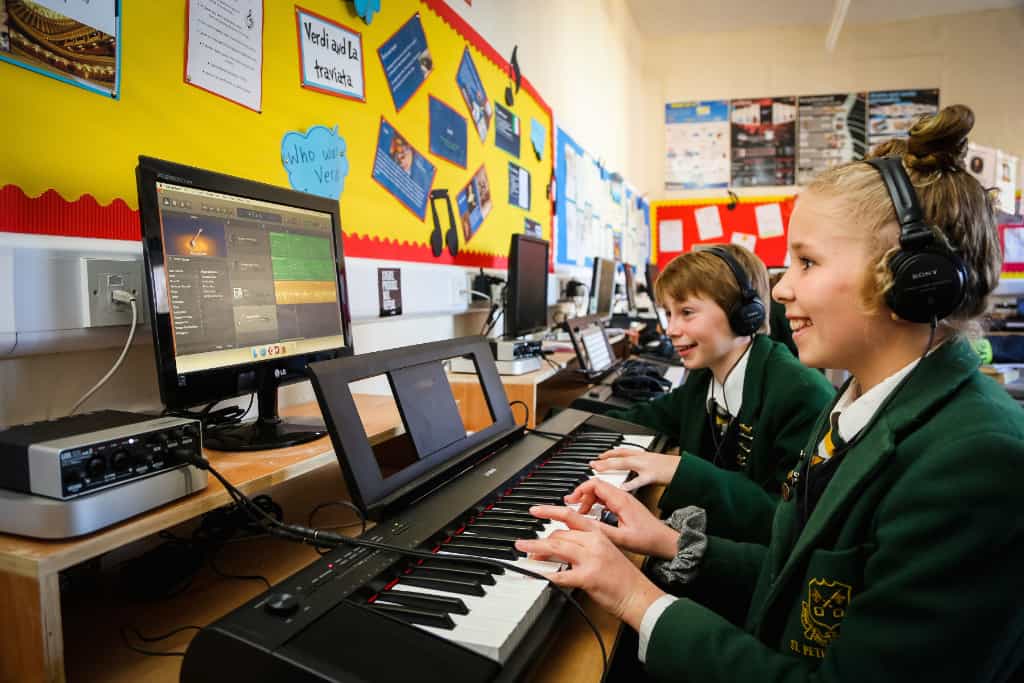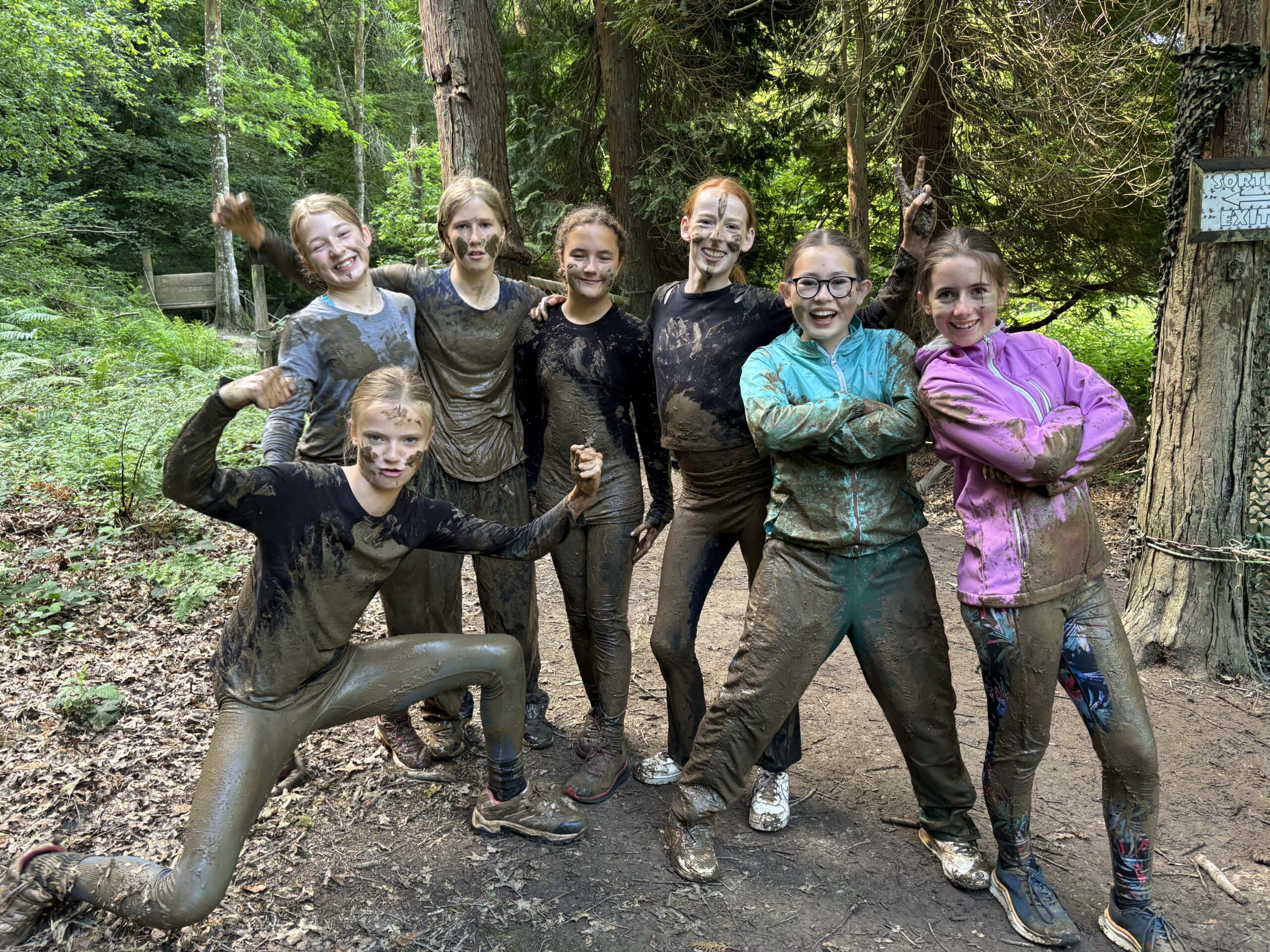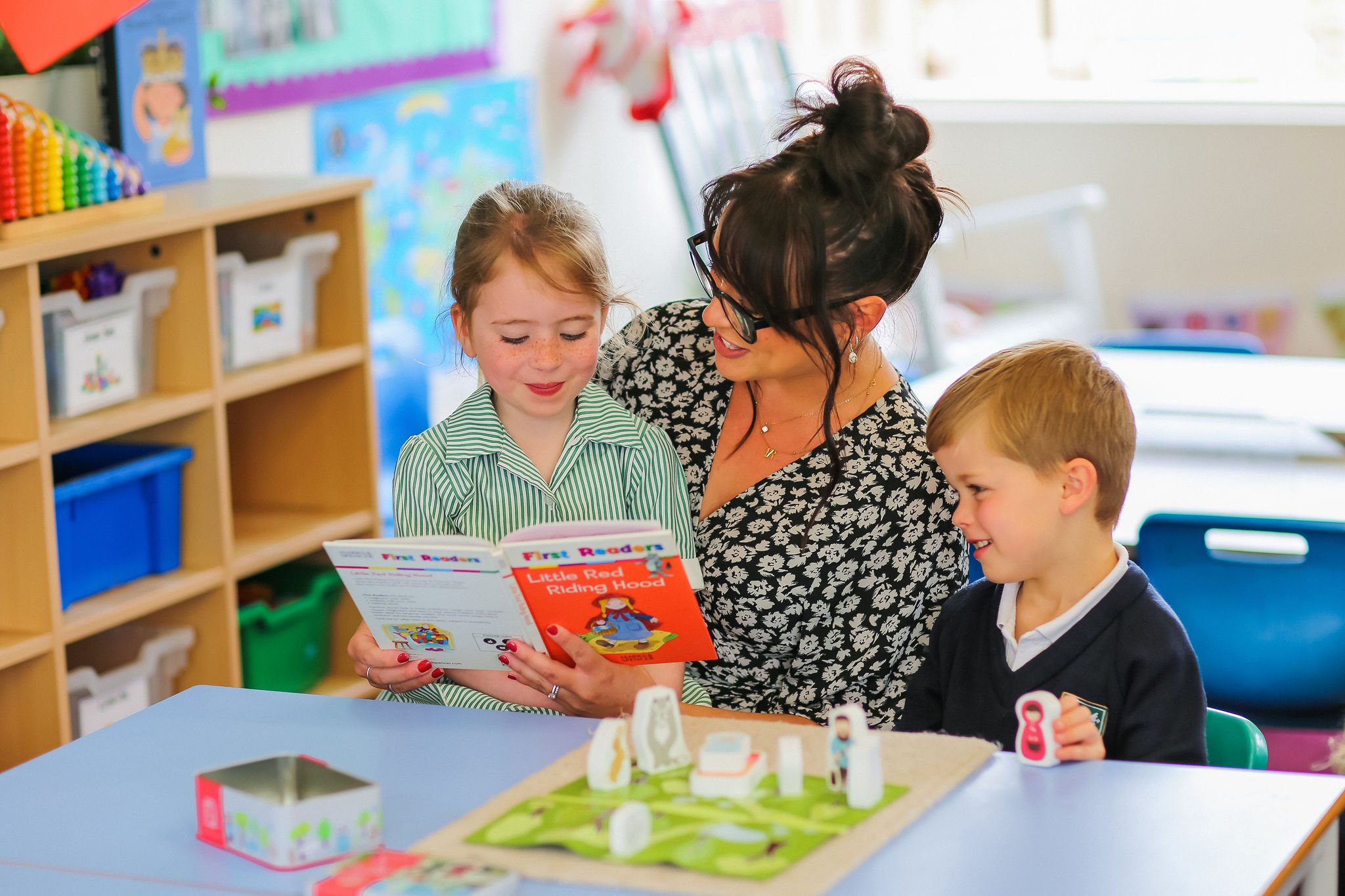“Music is the universal language of mankind” – Henry Wadsworth Longfellow.
Music plays a significant role in a child’s development and early childhood.
Common musical integrations would include songs like lullabies, or singing nursery rhymes; learning the alphabet, being bopped up and down to tunes, or soothing humming.
For this reason alone, it is apparent that music is beneficial from even the youngest of ages. Let’s take a look at why that might be.

Music Has a Direct Effect on Our Hormones
Listening to music you enjoy decreases levels of cortisol (the stress hormone) in your body. This effect is no different for children. Children who are encouraged to explore music and listen to their favourite genres could show improvement in stress levels. We might not associate stress with children (other than being the cause sometimes!), but it does happen to them too, and this is a positive way of reducing it.
Music Can Increase Happiness
When listening to music, your brain releases a neurotransmitter called Dopamine. This particular chemical release is responsible for feeling joy, excitement and happiness and happens when you listen to music you like.
Children can also benefit from this exact same chemical interaction by listening to music they like too!
Music Can Improve Sleep
As music plays some impressive roles in the way our body chemistry behaves, it may come as no surprise that it can also affect sleep.
Pairing the previous points with this one, lower levels of stress and higher levels of happiness can alter sleep quality for the better, which is great news for your little ones.

Music Strengthens Learning and Memory
It’s been well documented that music helps people recall information more efficiently. In some cases with children, this can vary regarding whether they play an instrument or not. However, there is also a good reason to believe that just listening to music can help improve memory, with Alzheimer’s patients scoring higher on memory tests after only listening to classical music. This could be really useful information for children with different learning needs and approaches.

Therapeutic Effects of Music
Music has been studied vastly in terms of its connection with therapeutic properties. This can benefit so many children, teachers and parents, and also their relationship with each other.
There have been marked improvements in patients with dyslexia, autism, stress and anxiety who have listened or interacted with music, which is quite special. On top of that, it’s also suggested that it can improve communication for people with autism and help them develop further emotional understanding.
This has all been explored by neuroimaging. Neuroimaging uses various techniques to map the structure of the brain while it is engaging with music, monitoring its response. Other studies have also pointed out possible usefulness for ‘passive music listening’ for aiding stress reduction.
Music can Increase Verbal Intelligence
A study has shown that 90% of children between the ages of four and six gain increased verbal intelligence after only one month of taking music.
The results suggested that music had a ‘transfer effect’ which increased the children’s ability to comprehend words and even explain their meanings.

Music Helps Form Brain Structure
The early years are a period of rapid development for a child. The earlier the brain is exposed to music, the more efficiently their brains respond to stimulation.
Learning Music
Learning music has its own benefits too. It’s fun, which is important in daily life. Learning music can also help improve self-esteem and self-confidence. By learning songs, this can encourage personal achievement and can facilitate encouragement from teachers or parents. Music can also act as a form of self-expression, which is very important to help children manage their emotions or communicate. Music groups are excellent for improving social skills because of the way in which children have to work together in harmony to create a piece of music. There is also structure, such as attending rehearsals and practising, which will increase social interaction.
Here at St Peter’s private school, Devon, music is an important part of our curriculum. If you want to find out more about our school, please have a look through our website.









